Boy Scouts: A wholesome US institution poisoned by predators
- Published
Boy Scouts of America: Why is it filing for bankruptcy?
The Boy Scouts of America (BSA) - one of the largest youth organisations in the US - has filed for bankruptcy amid an avalanche of sexual abuse allegations.
The century-old group became as American as the Norman Rockwell paintings that immortalise their three-fingered salutes.
But its considerable membership - 2.4 million youth participants - is about half what it was in the 1970s, a decline that tracks mounting scrutiny surrounding the Scouts.
So what is behind the rise - and fall - of this American institution?
Founded in 1910, the non-profit claims 2.2 million youth members and 800,000 volunteers across the country. According to BSA, more than 130 million young people have participated in Scouts programmes since its inception.
It boasts famous alumni like ex-Secretary of State Rex Tillerson and former Secretary of Defence Robert Gates.
Hundreds of men say they were abused in the Boy Scouts
Considered a bastion of traditional American values, the BSA's self-declared "foundation of scouting" includes an oath to fulfil one's "duty to God and my country", with a mission to "prepare young people to make ethical and moral choices".
But behind the camp fire singalongs lurked "the largest paedophile ring on earth", a lawyer representing alleged victims said last year.
The BSA has been beset with a deluge of sexual misconduct allegations.
In February 2019, as reports emerged that BSA was considering filing for bankruptcy, the Abused in Scouting group used television ads to reach Boy Scouts across the country and found nearly 2,000 people with complaints, including one in every state, according to the New York Times.
The organisation now faces hundreds of claims directed at nearly 8,000 Boy Scout leaders.
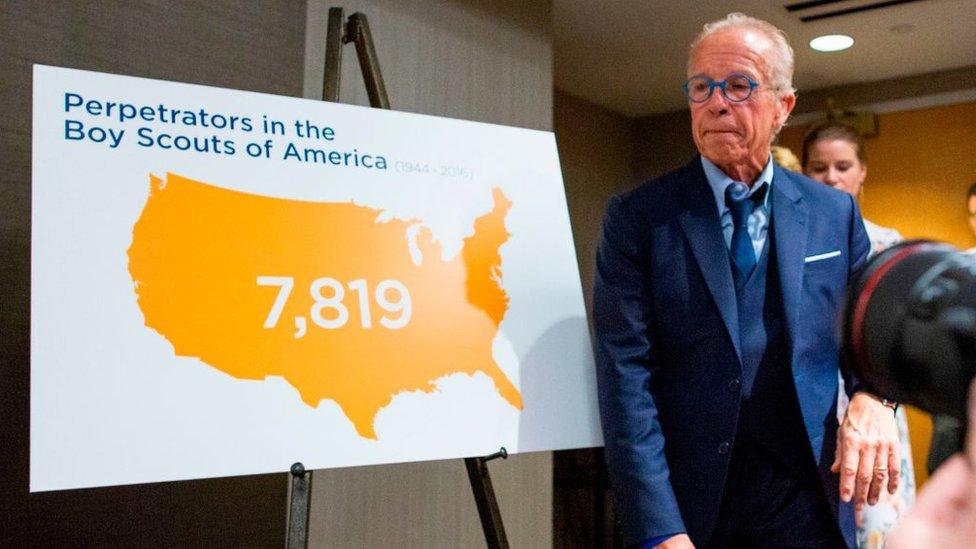
And such controversy isn't entirely new. A 1935 article in the New York Times detailed files on hundreds of people, labelled as "degenerates" who had served as leaders with BSA.
The organisation says its transition to bankruptcy is intended to build compensation for victims of sex abuse.
"The BSA cares deeply about all victims of abuse and sincerely apologises to anyone who was harmed during their time in scouting. We are outraged that there have been times when individuals took advantage of our programmes to harm innocent children," chief executive Roger Mosby said in a statement.
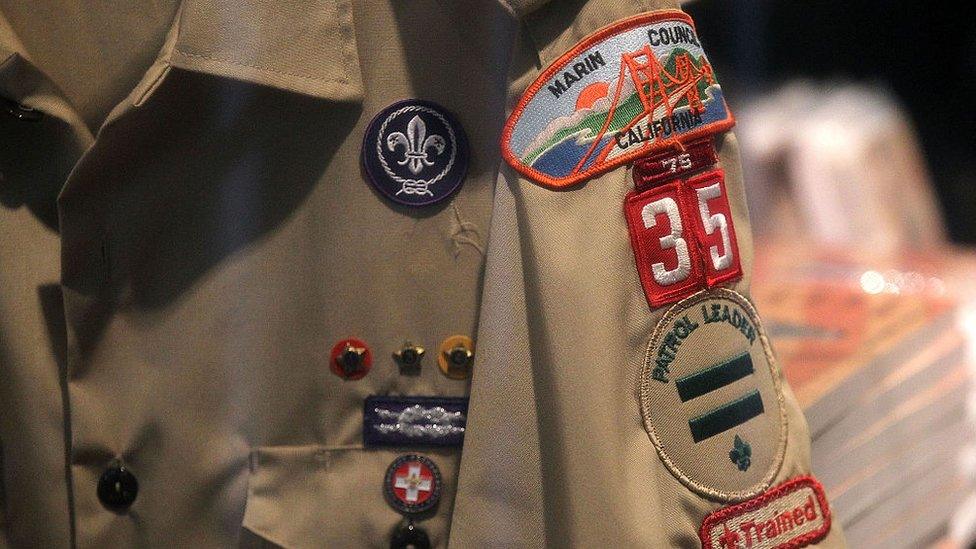
"While we know nothing can undo the tragic abuse that victims suffered, we believe the Chapter 11 process... will provide equitable compensation," he said.
But critics say the organisation has been negligent in addressing a culture of abuse, many pointing to more than 20,000 documents released by a state court in 2012 - initially concealed by BSA - which name more than 1,000 banned volunteers, and show that the Scouts had identified and monitored known abusers, without consistently reporting them to parents or the authorities.
Statutes of limitations for sex crimes may hinder some older cases from being pursued. But amid other high-profile abuse scandals, like those in USA Gymnastics and the Catholic Church, some states like New York and New Jersey have amended their laws to allow old cases to be brought forward.
BSA's liability could be substantial. In a 2010 landmark case in Portland, Oregon, a jury held the organisation liable for $18.5m (£17m).
- Published6 August 2019
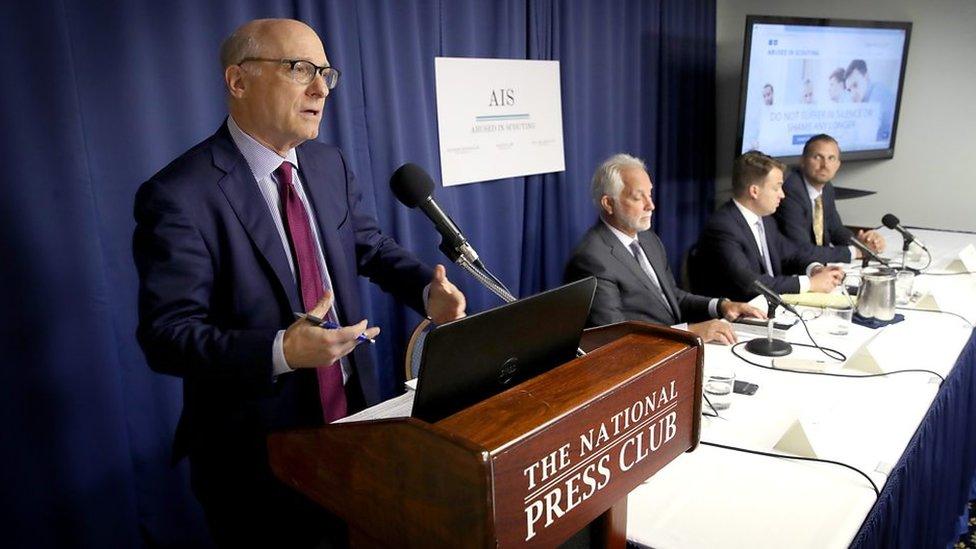
- Published2 May 2018
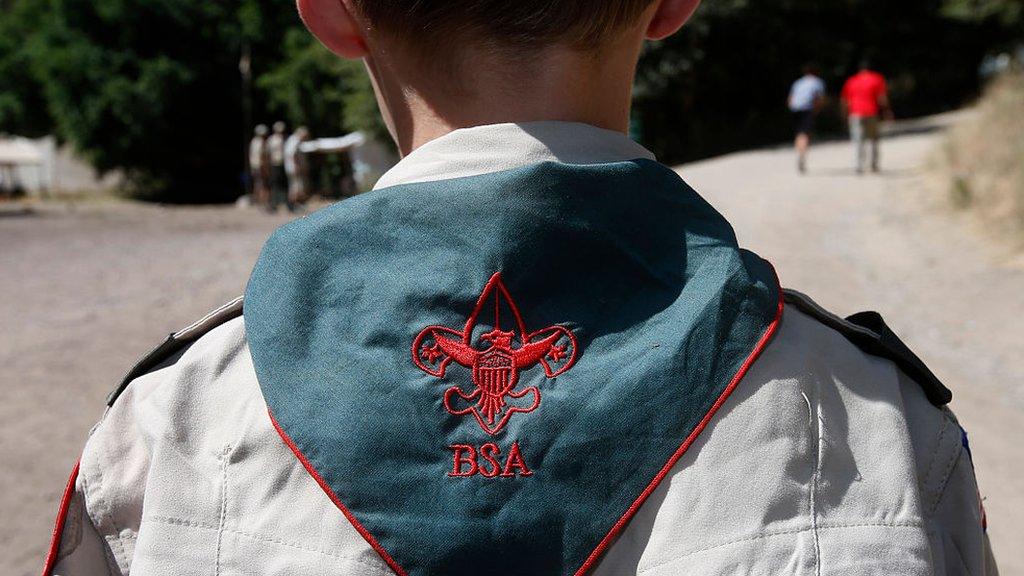
- Published6 August 2019
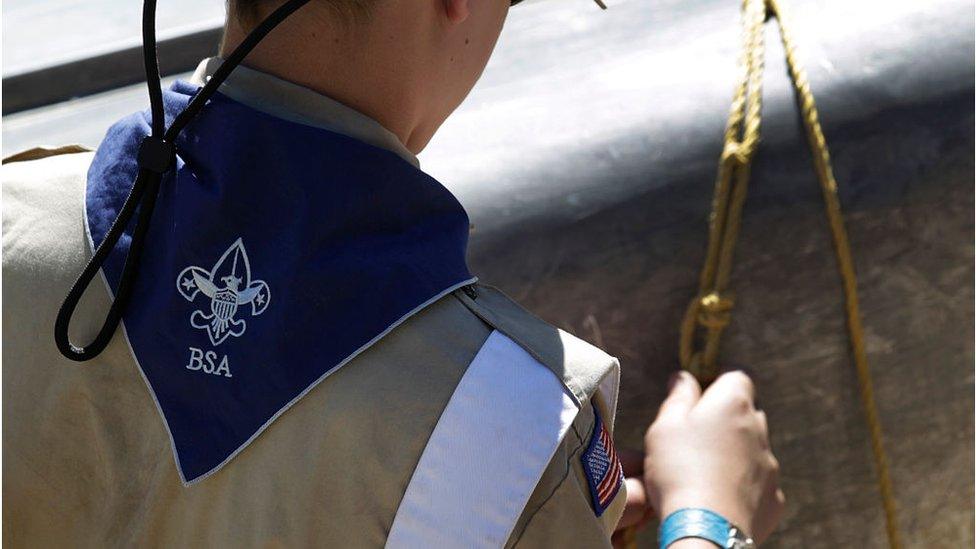
- Published18 February 2020
